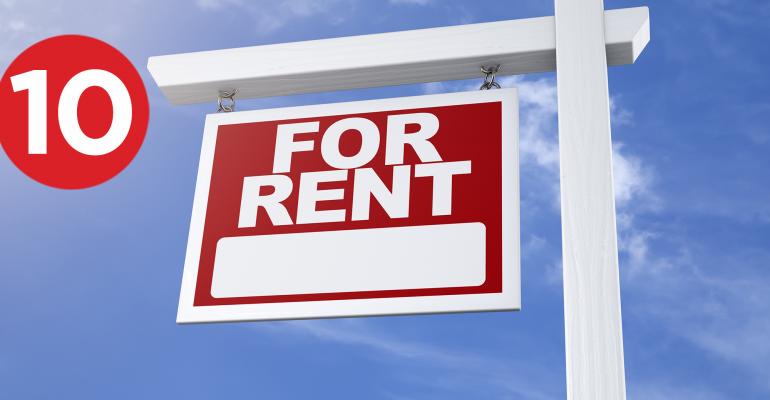- Rising Rents Threaten to Prop Up Inflation “As people move out on their own again or return to cities and office jobs, and as existing renters find they can’t afford to buy a home in a booming housing market, demand for apartments and single-family rentals is rebounding — and even looking hot in some places. Rents last month rose 7 percent nationally from a year earlier, Zillow data shows. While that was measured against a weak June 2020, the gain was also a robust 1.8 percent from May.” (The New York Times)
- SIOR Snapshot Sentiment Report Shows Highest Market Confidence on Record “As summertime emerges, so have businesses and economies, report SIOR members in the second quarter SIOR Snapshot Report. The report provides member feedback on the performance of transactions and the current state and future predictions of the market. SIORs say commercial real estate (CRE) is rebounding at a record pace, with the office sector finally making its comeback. Market confidence grew to its highest on record, at 7.6 (out of 10).” (SIOR)
- New Apartment Boomtowns May Be the Next Bubble “Soaring rents are drawing builders to Spokane and Boise, but post-pandemic uncertainties raise the risk of committing too soon.” (Bloomberg)
- Instacart Forays into Warehouses in Food Delivery Market “Instacart Inc. is entering the warehouse business, seeking to expand its reach in an increasingly competitive food delivery market. The grocery delivery company said it would start building fulfillment centers for supermarkets over the next 12 months, in partnership with technology company Fabric, in or near grocery stores, with capacity for 10,000 to 50,000 items. In such fulfillment centers, the company will use robots to pull items from warehouses and have Instacart’s workers pack and deliver orders.” (The Wall Street Journal)
- America’s Low-Income Housing Stock Is Very Old “On Tuesday, Sen. Tina Smith (D-MN) gave a grim account of a 2019 fire that killed five people in a Minneapolis public housing building. ‘As the fire spread, residents clamored to get out. Stairwells and corridors filled with smoke and heat and people struggled to get down the high-rise stairs,’ she recounted, pointing to the lack of fire sprinklers as a ‘leading cause’ of the devastation. Smith’s remarks came as she led a hearing on the health and safety risks that families living in federally assisted housing face, including lead paint exposure, which has toxic and irreversible effects.” (Vox)
- What’s the Price of an Unclean Hotel Room? “Now, some hotels say they want to make permanent changes that were instituted during the pandemic, like offering daily housecleaning only upon request, and adding options like mobile or contactless check-in. Guests, they say, don’t miss the old ways, and the changes would let them reduce costs. Michelle Millar, an associate professor at the University of San Francisco’s School of Management who studies sustainability and corporate responsibility in the lodging industry, said that there had already been a push toward technology-enabled services, but that ‘the pandemic exacerbated it.’” (The New York Times)
- Smaller But More Frequent Catastrophes Loom Over Insurance Sector “Floods in Germany, ice storms in Texas and heat domes in the Pacific Northwest are focusing attention in the insurance industry on the cumulative damage wrought by clusters of second-tier catastrophes. Less devastating than mega events such as earthquakes and hurricanes, these secondary perils, as they are known in the industry, happen relatively frequently and include hail, drought, wildfire, snow, flash floods and landslides. Climate change and urban sprawl are driving a jump in secondary perils losses, said Tamara Soyka, Head Cat Perils EMEA at Swiss Re.” (The Wall Street Journal)
- Could the Delta Variant Upend the Labor Day Return to Offices? “Labor Day was all set to be a signpost for employers to call workers back to the office en masse until the delta variant happened.” (Bisnow)
- Taconic, Nuveen Fund Targets New York City with $1B in Buying Power “Taconic Partners and Nuveen Real Estate have closed their second fund, New York City Property Fund II with $260 million in commitments. The equity commitments along with leverage and strategic co-investment gives the fund buying power of more than $1 billion. Through the fund, Taconic Partners and Nuveen Real Estate will invest across all real estate asset classes in the Greater New York area, and the fund expects to take advantage of opportunities created by and during the pandemic.” (GlobeSt.com)
- Vegas Workers Will Put Masks Back On, But Tourists Won’t Have to Under New Rules “Workers in Las Vegas and other parts of Clark County, Nevada, will have to resume wearing masks indoors but customers will not under new rules. The Clark County Commission voted Tuesday in an emergency meeting to require face coverings for all employees working indoors and around co-workers or members of the public in an increase in Covid cases driven by a more transmissible variant and a slowing vaccination rate.” (CNBC)
- Queens Landlord Arrested, Assaulted, Flooded by Tenants from Hell “A Queens landlord renting to The Fortune Society lost his home and property and faces criminal charges after two problem tenants moved in.” (The Real Deal)
0 comments
Hide comments





